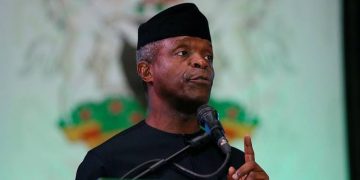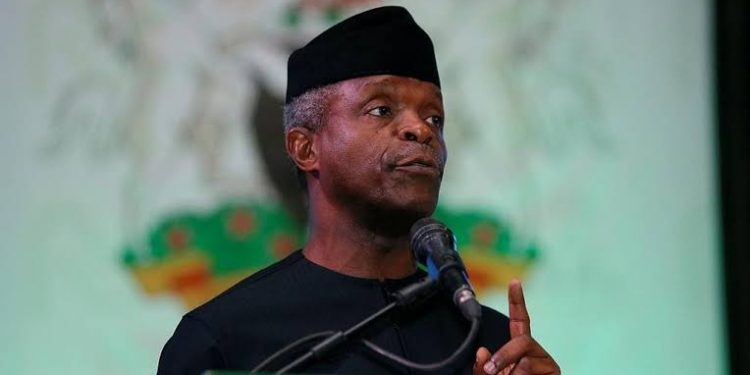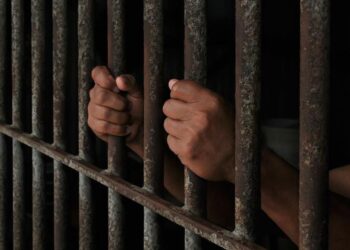By John Ikani
Reactions from economic experts have trailed Vice President Yemi Osinbajo’s call for a further devaluation of the naira by the monetary authorities.
The experts believe another devaluation is a recipe for high poverty and unemployment levels, adding that the implications of devaluing the naira now are quite scary, even though they agree that it will force down the volume of imports and reduce the pressure in the forex market temporarily.
Backstory
Osinbajo on Monday urged the Central Bank of Nigeria (CBN) to allow the naira to reflect the realities of the market in view of the falling exchange rate in the market.
He made the statement yesterday at the Mid-Term Ministerial Performance Review Retreat at the Presidential Villa, Abuja.
Osinbajo said the exchange rate is artificially low, and this is deterring investors from bringing foreign exchange into the country.
“As for the exchange rate, I think we need to move our rates to [be] as reflective of the market as possible. This, in my own respective view, is the only way to improve supply. We can’t get new dollars into the system, where the exchange rate is artificially low. And everyone knows by how much our reserves can grow. I’m convinced that the demand management strategy currently being adopted by the CBN needs a rethink, and that is just my view,” he stated.
Reactions
Experts who spoke on the Vice Presiden’s proposal expressed divergent positions which creates a level of controversy around the position of Osinbajo on the foreign exchange market policy change.
Nigeria’s first professor of capital market, Uche Uwaleke, said while the Vice President obviously means well, “this statement is capable of triggering panic buying and speculation in the forex market (official and parallel) and further complicating things for the CBN.”
Economic analyst, Stephen Kanabe, said Prof Osinbajo should have thought of the impact it would have on the pump price of fuel and the multiplier effects.
Corroborating Uwaleke, Kanabe said such a move would have knock-on effects with regard to inflation and interest rates especially at a time when inflation rate remains elevated. High inflation rate not inimical to investments whether local or foreign.
The argument that naira devaluation will incentivise foreign investors remains to be seen as other factors such as insecurity equally play a part.
“It will make imports more expensive. And we don’t have alternatives to most of the imported products today,” he said.
Mr Kanabe said the authorities need to create the enabling environment for industries to thrive and produce for local consumption and export. He said a country without export value ends up creating more economic hardship for the people by devaluing its currency. “What options are you giving the people?” he queries.
To be sure, the naira has suffered several devaluations in the recent past. Professor Uwaleke said devaluation of the naira has neither solved the fundamental problem of helping to diversify the export base nor curbed unbridled imports. Doing so yet again will not change anything. Rather, it’s a recipe for high poverty and unemployment levels.
The CBN had said it has sufficient external reserves to meet genuine demands for forex at the Investors and exporters’ window. This much they have told Nigerians several times.
Uwaleke said the CBN should continue to manage it while joining hands with the fiscal authorities to create multiple sources of forex beyond oil.
However, a vice presidential aide said Osinbajo did not call for Naira devaluation.
“He only called for an official rate reflective of market reality. The current dual exchange rates allow for arbitrage and blocks inflow/supply of dollars from investors,” he said.




































